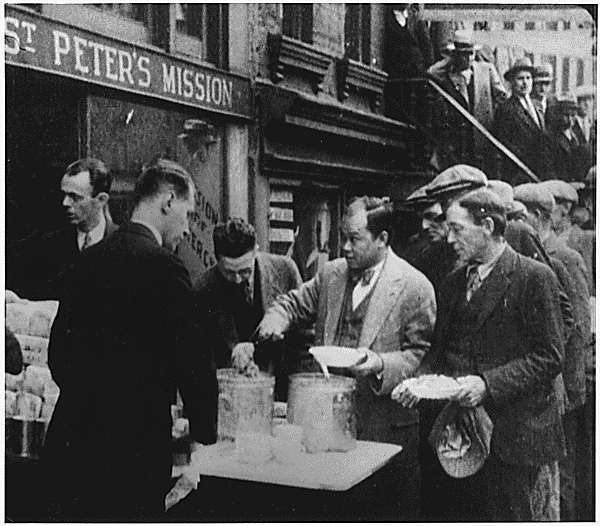It is my pleasure to introduce Philanthropy Daily readers to my friend Leah Libresco, who blogs on Patheos at Unequally Yoked. Leah is perhaps most well known for her conversion from atheism to the Catholic Church and her application of the ideological Turing test to religious debates, but she is also highly interested in philanthropy and in particular the increasingly popular philosophy of “effective altruism.” After reading the notes of her talk to the Yale Effective Altruists club, I got in touch with Leah to dig deeper into her philosophy of philanthropy.
Leah, let’s get right down to this. Philanthropy Daily has published a couple of hard-hitting critiques of effective altruism (EA), including a piece by Bill Schambra in which he calls effective altruism “a radical utilitarian approach” that “finds any qualification of the purely utilitarian calculus of maximum human benefit to be morally unacceptable.” Is this a fair definition of effective altruism? What do you find compelling about this vision of how to give?
Hard-core utilitarianism is definitely a strand of the Effective Altruism movement, but people who are suspicious of utilitarian calculus can still get a lot out of EA. At its most basic, EA is a better version of what old charity evaluators did.
The lowest level of charity screening is basically typing “[Charity name] + fraud” into Google and checking to make sure the organization is legitimate. One level up from that is looking at what proportion of donations goes to overhead versus the intervention, so that more of your money goes toward the cause. The next level, what a group like GiveWell does, is looking more critically at the cause itself, to make sure that your money really is buying some good.
It’s easy to wind up giving to causes that sound good on paper that just don’t do very much for the people they’re trying to help, despite the best intentions of their leaders. EA groups and researchers want to help people spend their charity budget better, especially as we face more opportunities to give far from home, where we won’t personally observe the effects of our donations.
So learning to give in a more effective way probably seems pretty innocuous to most people. But I want to raise a couple of challenges to EA that I think apply even to its moderate form. First let’s talk about some practical issues. One of the revolutionary points made by William Schambra and other philanthrolocalists has been that there’s remarkably little evidence that the quest to measure philanthropic outcomes in a rigorous, quantitative way has actually worked. In practice what happens is that huge resources have to be committed to try to quantify complex social phenomenon that aren’t easily measured and complete needlessly complex reports for funders. So small nonprofits (who may have the best operation on the ground) throw up their hands and don’t seek funds that are tied to measurements at all, and nonprofits that do are ironically made less efficient because their administrative costs balloon out of proportion to what the mission actually calls for. So the question is, how are the EA folks so confident that seeking effectiveness is actually effective?
Well, first of all, I really enjoy the term “philantholocalists.” And I can see how EA can feel like a threat to local causes if EA is primarily about diverting as much charity spending as possible to the single “best” intervention. But I like to think of EA as both a guide for part of my charity budget and as an epistemic toolkit I can use to guide my work and spending on non-GiveWell-vetted causes.
A local group may not be set up to run massive RCTs (randomized controlled trials) but can still benefit from thinking about what problem they’re trying to solve/ameliorate and whether they’ve set up good feedback loops to see how they’re doing.
When I worked at an education startup in California, I didn’t get to test the curriculum I was writing on RCTs, but I could notice that checking how people did on exercises in class wasn’t quite close enough to the change I was actually trying to produce to be useful. So I also followed up with people to ask about when they used the statistics I taught in day-to-day life and how it was shaping their decisions a month after the class. Neither the worksheets nor the follow-ups were gold-standard data, but adding the follow-ups was still a big improvement and changed how I taught.
The EA toolkit, properly applied, is about doing the most with the data you have, and kludging together decent error checks when the gold standard isn’t an option.
I’m also worried about the potential observer effects that come with the metrics-based outlook of EA. It seems like the very expectation of measurement radically alters how charitable acts are perceived, and not necessarily for the better. Let’s say I’m running a group that is trying to help former inmates reintegrate into society, and I find that I can help five guys who did three months for drug possession for the same resources it would take to help one person who did twenty years for murder, and so I feel justified in leaving all of the latter category out on the street. On a philosophical level, this seems like a system that is dehumanizing at its core, but on a more practical level it could lead to a lot of inefficiencies as well, since the measurements no matter how precise can never really provide the whole picture. When, if ever, should we choose to opt out of the measurement game?
Quantification can tell us about how hard/costly a task is, but not about how important it is to us. It would be possible to think malaria might be the place your money could go furthest with regard to disease, but that you worried less about physical ills than certain relationship/spiritual ones, and wanted to put a lot of your resources into pre/post-marital counseling, for example.
Your example is more about picking and choosing people to help with a specific problem, than choosing the problem, and it’s similar to the dilemmas faced by hospitals choosing who to give organs to. I don’t think there’s an easy answer -- you want to do the best you can with the resources you have, but not to treat any category of people as disposable, by excluding them. Quantification can help clarify how much you’re trading off to be inclusive, but it doesn’t tell you when you should triage instead of helping everyone you can till your money/organs run out.
That is a great distinction between quantifying aspects of an organization or cause but not how the end of that cause ranks in relation to other causes or organizations. Because it seems to that this is a distinction that is allowed for in other philanthropic philosophies, if you will. So before effective altruism caught on the popular buzzword was “strategic philanthropy” which as I understand it basically meant what you have described so far: using data measurements to gauge the effect of philanthropic efforts and planning a strategy for any cause by seeing what inputs lead to what outputs.
But what makes effective altruism different than previous strategies is precisely what you are saying quantification cannot do, which is to tell us precisely what cause should be most important to us. Peter Singer, who is really the driving force starting this whole movement, says as much in the beginning of this interview. He says pretty bluntly that the “effectiveness” means that you have to give to produce the single most effective output, in accordance with correct values, which for him are starkly utilitarian.
Is there still some truth to Singer’s claim? And when you are addressing true believers in effective altruism, as you were at Yale, how do you talk them off the utilitarian cliff?
Peter Singer is definitely a big force in Effective Altruism, but he’s not a one-man movement. As far as I know, GiveWell and a number of other groups developed independently of Singer and, although there’s a fair amount of consensus on some low-hanging fruit (malaria, etc.), that doesn’t mean EA is a unified block on other questions (e.g., Singer’s controversial stances on animals and the disabled). If I’m having a discussion with someone who’s committed to effective altruism and differs from me in some of the way that Singer does, our disagreement is really orthogonal to EA. I’m not going to be appealing to randomized controlled studies/cost-effectiveness while I’m making a case for human babies being more important than adult pigs. We’re probably both going to be appealing to more foundational sources of values and need to thrash out a way to resolve our differences.
When I wind up in fights about utilitarianism particularly, it’s usually because my sparring partner is arguing that everything is fungible -- that you should be able to have “murder offsets” if you’re saving enough lives, etc. (Usually just as a thought experiment, I should point out!) My response usually involves asking why the other person values human life/absence of human suffering--why they’ve denominated their utils in human lives, essentially. I value treating disease, addressing poverty, etc., because there’s something uniquely beautiful about human life, something that is thwarted by desiring or using “murder offsets.”
So tell me a little bit about how all of this applies to your personal life. In your talk at Yale, you mentioned that you used to give through GiveWell every time five people had asked you for money. What changed that?
It didn’t work very well for me. It still didn’t give me something to do that was a personal response to the people asking me. And I tended to get very self-conscious about the whole thing (if I was walking too fast to be asked, did that count as an ask, since I was thwarting it as much as if I’d said “No?” etc). Nowadays, I tie my EA giving to my personal giving by matching donations I make for someone I know (e.g., when I donated to help my friend Jenna discharge her student loan debt to become a nun) with a donation that will help people who don’t have the opportunity to ask me personally (usually through GiveWell).
I still haven’t worked out a good way to handle street asks. And I’m open to suggestions. I have trouble finding an open, loving way to respond that leaves me feeling safe--I live in a city with some problems with street harassment.
I’ve never been a GiveWell person myself, but I’ve started to become much more comfortable with giving freely to whoever asks in my own life. And I think that comes out of my own understanding of the demands of Christian charity. So you have St. John Chrysostom saying in his homilies on wealth and poverty that the need of the poor is the justification for what you give them. Don’t judge them or measure them or worry about whether they are going to buy liquor. Just give away your possessions, because your possessions aren’t ultimately yours, they belong to God, and the beggar is Christ coming into your life. Do you think there’s any hope for that radical message to take hold in the philanthropic world?
I certainly think that’s a message that some Effective Altruists are interested in. (More the “you have no special right to your possessions” than the “give without asking” part). I think there is a growing ethos of stewardship, where people see their money as something they’re in charge of distributing, rather than something they’re in charge of, full stop.
I’m trying to develop more of a reflex of saying yes to asks or to just giving whenever the impulse strikes me. I want to get a little more of the habit I try to cultivate in my prayer life, where I don’t want to pause, wondering, “Should I pray?” but to have the beginning of the question just flow right into prayer itself. I’m not very good at it! On either front!
Okay, so since Leah and I were both members of the Yale Political Union, where we became experts at asking slightly unfair questions to skewer opponents, I have to end this with a dichotomy: “I give to my church because I want it to do well, just like I buy a theater subscription” or “I buy a theater subscription because I love theater on its own terms, just like I give to my church because I love God”?
The latter. Sometimes it just feels very nice to be able to give anything, including something as impersonal as money, to a person or institution that cares for me/helps me grow in love. I try to be a little reflective about whether I’m giving what the other person needs or just what is easiest for me to give. But it’s a pleasure to be able to return something in any event.






